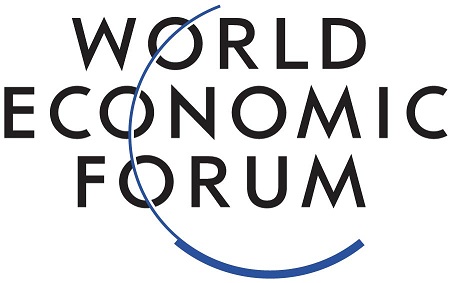As the great and the good gathered for the 50th World Economic Forum (WEF) Annual Meeting in Davos, Switzerland there was much interest in a potential clash on the sidelines between the U.S. and France.
The French, in July 2019 had outlined a digital services tax on U.S. big technology players, i.e. Alphabet (Google), Apple, Amazon, Facebook and Netflix. These technology titans would have been due to make tax payments equivalent to 3% of their French revenues in April and then again in November.
This, as one might have expected led to U.S. ire and the threat of $2.4 billion of tariffs on French goods, e.g. wine and cheese.
Based on data from “The Economist Pocket World In Figures 2020” the U.S. is a market that is worth 7.2% of French exports, with a value of $38.6 billion. With French GDP growth averaging just 1.325% over the last rolling four quarters (Source: INSEE), there was great interest as to how the dialogue between U.S. Treasury Secretary, Steve Mnuchin and the French Finance Minister, Bruno Le Maire would develop.
La France Clignote … France Blinks
Given President Trump had made the trip to Davos, the dialogue over trade was elevated to the highest level and following a one on one between President Trump and President Macron on Monday a compromise was agreed.
France considered what was at risk and agreed to delay collecting a new tax on multinational technology firms until the end of 2020. As a result, the U.S. has agreed not introduce extra tariffs this year.
Several European countries, including France and the U.K. have been looking at separate digital sales tax regimes as they waited for a multilateral agreement about how such firms should be taxed to be drawn up by the Organisation for Economic Cooperation and Development (OECD).
If the OECD develops a workable multilateral deal France’s unilateral tax will not have been applied.
U.K. Unilateralism
Chancellor of the Exchequer, Sajid Javid used his speech at Davos to vow that the U.K. would press ahead with its own digital services tax in April despite threats of U.S. retaliation.
This is not a wholly new concept as the tax on revenues was proposed by former chancellor Philip Hammond in 2018. It is designed to raise more than £400 million ($520 million) for the Treasury by 2022.
The proposal is that digital companies with global sales exceeding £500 million ($650 million) and at least £25 million ($33 million) worth of U.K. sales pay a tax of 2% on those sales.

Britain’s Chancellor of the Exchequer Sajid Javid (L) greets US Treasury Secretary Steve Mnuchin in … [+]
AFP VIA GETTY IMAGES
In addressing an audience at Davos Sajid Javid said:
“It’s a proportionate tax and it’s deliberately designed as a temporary tax, so it will fall away once there is an international solution.”
However, the U.S. has not reacted well as they regard to be a naked “tax grab” on American companies and U.S. Treasury Secretary Steven Mnuchin has threatened Britain with retaliation if the U.K. tax is enacted.
“International tax issues are very complicated and take a long time to look at … If people want to just arbitrarily put taxes on our digital companies, we’ll consider arbitrarily putting taxes on car companies. …”
Will This Harm U.S.- U.K. Trade Talks?
I wonder if what we are really seeing is just the great game of political posturing on the world stage. Although the newly elected Conservative government looks secure with an 80-seat majority, a full five years ahead of it. Labour in the midst of a leadership contest. I sense the government did not want to start 2020 by immediately caving in the U.S.
That would have fuelled the commentary that Boris Johnson would simply roll over to get a trade deal with the U.S. What I believe is that Johnson and Javid are showing to the home audience and to the EU that the U.K. will be talking tough over trade.
When it comes to the potential deal with the U.S. it may be a bargaining chip. Indeed, when pressed about a U.S. – U.K. trade deal Mnuchin said,
“…That’s an absolute priority of President Trump and we expect to complete that with them this year, which we think will be great for them and great for us, …”
In an echo of that sentiment, U.S. Commerce Secretary Wilbur Ross, said he thought a U.S. -U.K. trade deal ought to be “…much easier mechanically…” than a U.K. deal with the EU.
There have been many claims by the opposition parties that Johnson would allow the National Health Service (NHS) to be on the trade talks table. This may lead to the NHS paying billions of pounds more for drugs under such a trade deal given the U.S. would seek full market access for its pharmaceutical companies’ products in the U.K.
On this point Secretary Ross said:
“…What we think is that drugs should have similar prices wherever they are, but I don’t believe we are in any position to tell the U.K. what to pay for drugs. …”
However, this digital tax is going to remain in the spotlight as the U.S. said it will impose tariffs on U.K. car manufacturers unless the plan is abandoned.
Mnuchin said Donald Trump will personally pile pressure on Boris Johnson to drop the proposed levy. However, the U.K. is not caving…at the moment… as Sajid Javid insisted it will go ahead as planned in April.
It is surely going to be part of the trade talks strategy. It will be dropped in return for concessions from the Americans. Oh, but it makes for interesting economic and political analysis.
FORBES
